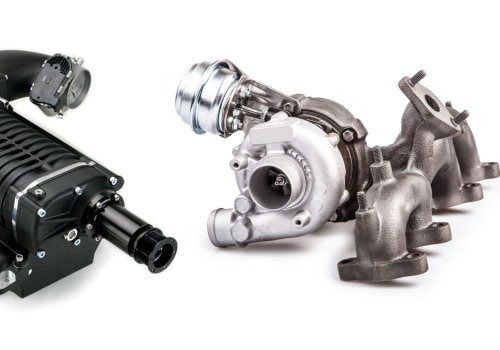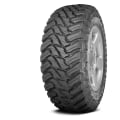Today's diesel engines have come a long way since their early days of development in the late 19th century. Turbocharged diesel engines are a modern marvel, combining the efficiency and power of diesel with the boost of a turbocharger to create an engine that outperforms traditional diesel engines in many ways. In this article, we'll take an in-depth look at turbocharged diesel engines, exploring their components, benefits, and potential drawbacks. We'll also discuss the various applications of car shipping companies turbocharged diesel engines and provide helpful tips for proper maintenance and use.
Turbocharged Diesel Engines are becoming increasingly popular as they offer more power from a smaller engine size. This is achieved by forcing more air into the engine through a turbocharger, allowing for increased power and efficiency. There are various types of turbochargers, each with their own advantages and disadvantages. A turbocharger is essentially a compressor that uses exhaust gas to spin a turbine wheel, which in turn compresses the air entering the engine. This forced induction allows for increased power and fuel economy, as well as reduced emissions.
The most common type of turbocharger is the radial turbocharger, which uses centrifugal force to compress the air and is typically used in larger engines. Other types include axial turbochargers, which use a smaller wheel and are better suited for smaller engines, variable geometry turbochargers, and sequential turbochargers. The components of a turbocharged diesel engine include the turbocharger, intercooler, exhaust manifold, and fuel injectors. The turbocharger is responsible for compressing the air entering the engine, while the intercooler cools the compressed air before it enters the combustion chamber. The exhaust manifold collects the exhaust gases and directs them to the turbine wheel of the turbocharger, while the fuel injectors spray fuel into the combustion chamber.
In addition to increasing power and efficiency, turbocharged diesel engines also offer several other benefits. For example, they can reduce emissions by using exhaust gas recirculation (EGR). This process recirculates some of the exhaust gas back into the combustion chamber to be burned again, resulting in fewer pollutants being released. Forced induction also increases fuel economy by allowing for more complete combustion of fuel.
There are many applications where turbocharged diesel engines are used. Large ships often use them for propulsion, as they offer greater efficiency than traditional diesel engines. They are also commonly used in race cars and other performance vehicles as they can produce higher levels of power without sacrificing fuel economy. Turbocharged diesel engines are also often used in trucks and other heavy-duty vehicles where extra power is needed for hauling or towing.
Advantages and Disadvantages of Turbocharged Diesel Engines
Turbocharged diesel engines offer a number of advantages over traditional naturally-aspirated diesel engines.The increased power output can be beneficial for performance applications, allowing for quicker acceleration and more torque for towing. This increased power also allows for heavier payloads to be carried with the same engine size. However, there are some potential disadvantages to consider when using turbocharged diesel engines. The increased pressure can cause higher levels of emissions and reduced fuel economy.
Additionally, the added complexity of the turbocharger can add cost and maintenance requirements that are not present with naturally aspirated engines. To mitigate these issues, modern turbocharged diesel engines utilize advanced technologies such as variable geometry turbochargers, exhaust gas recirculation, and selective catalytic reduction to reduce emissions and improve fuel efficiency. Overall, turbocharged diesel engines offer a number of advantages in terms of performance and payload capacity but care should be taken to ensure that emissions and fuel economy are not sacrificed in the process.
Types of Turbochargers
Turbocharged diesel engines are becoming increasingly popular, with different types of turbochargers available to suit different needs.The most common types of turbochargers used on diesel engines are variable geometry turbochargers (VGTs), twin-scroll turbochargers, and wastegate-controlled turbochargers. Each type has its own advantages and disadvantages.
Variable Geometry Turbochargers (VGTs):
VGTs are designed to vary the angle of the turbine blades depending on the engine's speed and load. This allows them to provide more boost at low engine speeds and less boost at higher engine speeds, which helps to improve fuel efficiency and reduce emissions.VGTs are also relatively simple and reliable, making them a popular choice for many diesel engines.
Twin-Scroll Turbochargers:
Twin-scroll turbochargers use two separate exhaust gas passages to increase exhaust gas flow velocity, which can improve engine performance. The main advantage of twin-scroll turbochargers is that they can provide more boost at low engine speeds than single-scroll turbochargers, making them well-suited for vehicles that require a lot of power at low engine speeds. The downside is that they are more complex and expensive than single-scroll turbochargers.Wastegate-Controlled Turbochargers: Wastegate-controlled turbochargers are designed to limit the amount of boost they produce at high engine speeds. This helps to reduce turbo lag and improve fuel efficiency. The main disadvantage of wastegate-controlled turbochargers is that they are less efficient than variable geometry or twin-scroll turbochargers, making them better suited for smaller engines. In conclusion, turbocharged diesel engines offer the benefit of increased power output compared to non-turbocharged engines. However, they can also come with some drawbacks that must be taken into consideration.
Potential drawbacks include increased complexity, increased cost, and a higher risk of mechanical failure due to the added strain on the engine. Ultimately, the decision to use a turbocharged diesel engine should be based on an individual’s needs and budget.






